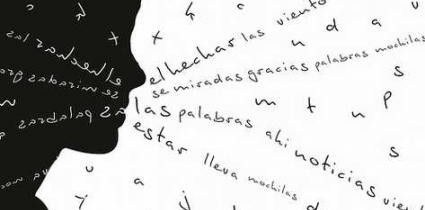 |
Facts
Duration: 1 semester
Period: Fall (3) Semester
Credits: 3 ECTS
Contact Hours: 34
Self-study: 74
Hours: 108
|
Main Objectives
- to study the basic aspects of Phonetics as a science;
- to study methods of investigation applied in Phonetics;
- to study phonetic units of the language, their function and manifestation;
- to study peculiarities of the English phonetic system.
Learning Outcomes
Formation of competence:
а) intercultural:
- the ability to develop cultural and professional level independently and to master new methods of research;
- the ability to get and use new knowledge independently.
b) professional:
- the ability to use the system of linguistic knowledge including the functioning of the language in the professional sphere;
- the ability to operate under the theoretical and applied linguistics, as well as the theory of crosscultural communication to solve the professional problems;
- ability to conduct independent researches according to the developed programme.
Professor
Irina G. Razina, Associate Professor
Course annotation
|
Course unit code |
Specialization 45.03.02 Linguistics |
||||||
|
Course unit title |
Theoretical Phonetics of the English Language |
||||||
|
Name(s), surname(s) and title of lecturer(s) |
Irina G. Razina, Associate Professor |
||||||
|
Level of course |
Bachelor |
||||||
|
Semester |
3 |
||||||
|
ECTS credits |
3 |
||||||
|
Working hours |
Contact hours |
34 |
|||||
|
lectures |
34 |
||||||
|
seminars |
|||||||
|
practical classes |
|||||||
|
laboratory classes |
|||||||
|
consultations |
|||||||
|
Independent work |
74 |
||||||
Total |
108 |
||||||
|
Work placement |
none |
||||||
|
Language of instruction |
English |
||||||
|
Prerequisites |
Introduction into Linguistics |
||||||
|
Objectives of the course |
Learning outcomes |
A student’s assessments methods |
|||||
|
aims: - to study the basic aspects of Phonetics as a science; - to study methods of investigation applied in Phonetics; - to study phonetic units of the language, their function and manifestation; - to study peculiarities of the English phonetic system. |
Formation of competence: а)intercultural: - the ability to develop cultural and professional level independently and to master new methods of research; - the ability to get and use new knowledge independently. b) professional: - the ability to use the system of linguistic knowledge including the functioning of the language in the professional sphere; - the ability to operate under the theoretical and applied linguistics, as well as the theory of crosscultural communication to solve the professional problems; - ability to conduct independent researches according to the developed programme. |
Tests and exam. |
|||||
|
Teaching methods |
Lectures, reading of literature |
||||||
|
Course unit content |
Title |
Lecturers (hours) |
Self-study (hours) |
||||
|
Phonetics as a science |
2 |
10 |
|||||
|
Methods of investigation in Phonetics |
2 |
10 |
|||||
|
Levels of the language: segmental and suprasegmental Phonetics |
4 |
10 |
|||||
|
The phoneme theory |
6 |
16 |
|||||
|
Syllabic and accentual structure of English words |
6 |
16 |
|||||
|
Intonation structure of the language |
4 |
14 |
|||||
|
The problems of Phonostylistics |
4 |
14 |
|||||
|
The language norm and variety of English pronunciation |
6 |
18 |
|||||
|
34 |
108 |
||||||
|
Assessment requirements |
Student’s skills in this subject will be evaluated by means of written tests and final examination. |
||||||
|
Assessment criteria |
The assessment of the presented works is carried out by the following criteria: – compliance of the contents to a subject; – existence of logical communication of stated information; – compliance of registration to requirements; – accuracy and literacy of a statement; – work is handed over in time. |
||||||
|
The composition of final accumulative mark |
Final accumulative mark consists of: 4 tests –20 %, exam – 80 % |
||||||
|
Course outline arranged by |
Irina G. Razina |
||||||
.png)